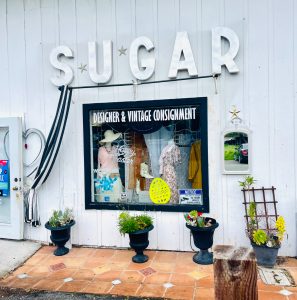Supreme Court overturns Roe v. Wade sparking Redwood activism
July 1, 2022
On Friday, June 24, the Supreme Court announced its decision to overturn Roe v. Wade (Roe), thus eliminating the choice of abortion as a constitutional right. In 1973, Roe established the federal protection of abortions following a trimester system and banned state limitations during the initial three months of pregnancy. Planned Parenthood v. Casey (Casey) reaffirmed this right in 1992, though it placed some restrictions on abortion choices based on the viability of an individual’s fetus.
According to the released Supreme Court decision, both Roe and Casey relied on the 14th Amendment to the Constitution. This amendment allowed an expansion of personal rights, stating that “no State shall make or enforce any law which shall abridge the privileges or immunities of citizens of the United States.” In turn, both Roe and Casey specifically referenced this liberty aspect. However, when the amendment was adopted in 1868, 14 states had criminalized abortion at any stage. The ratifiers of the 14th Amendment did not see reproductive rights as central to liberty and, therefore, the majority of the Supreme Court justices felt those rights should not have constitutional protections.

The Roe decision in 1973 prompted considerable long-term efforts to overturn and preserve its provisions. Opposing efforts accelerated when former president Donald Trump appointed justices Brett Kavanaugh and Amy Coney Barrett to the Supreme Court, resulting in a conservative majority. Another significant factor in the ruling was the Supreme Court case Dobbs v. Jackson Women’s Health Organization (Dobbs), which challenged the constitutionality of a 2018 Mississippi state law that banned most abortions after 15 weeks of pregnancy. As Dobbs was appealed by the Court, it triggered an immediate discussion of Roe — ultimately leading to the court’s decision to reverse the near 50-year legal precedent.
The decision has already resulted in the limitation of abortion nationwide, with 13 states adopting trigger laws effectively banning abortion within 30 days of the new Roe decision. Other states have legislation predating Roe that could also be reconsidered, risking more restrictions in the near future.
The state of California is committed to protecting the right to an abortion. Governor Gavin Newsom announced the state’s commitment to shield patients and abortion providers in California from being sued in states with active abortion bans. They will also partner with Democratic leaders of Oregon and Washington to defend access to reproductive healthcare, including abortions and contraceptives.
Planned Parenthood is also continuing this mission on the ground level, directly supporting those seeking abortion care in the future. In California, Planned Parenthood has reaffirmed its dedication to keeping its services accessible to all.
“Especially if [those who want an abortion] come from another state, we try to [suggest] any funding programs or any resource to help them with the cost,” one representative, who did not give their name, from the San Jose, California Planned Parenthood told the Bark.
At the Marin level of abortion advocacy is Redwood activist and rising senior Georgia Alvarado, who has been using social media as a platform for spreading awareness. She emphasized the importance of sharing resources both online and in person for others to find healthcare.
“A lot of people think [Roe overturning] won’t affect us in California, which is true. [Though] it’s nice having that safety net, it doesn’t take away from the fact that it affects the lives of so many women. Just because it doesn’t affect you doesn’t mean that it should be overlooked and ignored,” Alvarado said.

Like Alvarado, other Redwood students are outraged by this ruling and are making their voices heard. After the leaked draft in May, a Redwood walkout protest took place. Mary Sharon, one of the organizers and a recent graduate from Redwood, is hopeful student action will lead to change.
“With the sort of resources that people are already sharing and an increase in protests, I really think that more people are devoting themselves to the more long-term cause of this [access to reproductive healthcare],” Sharon said. “People have been fighting for these rights for generations, and one Supreme Court decision is not going to be the end of it.”






















